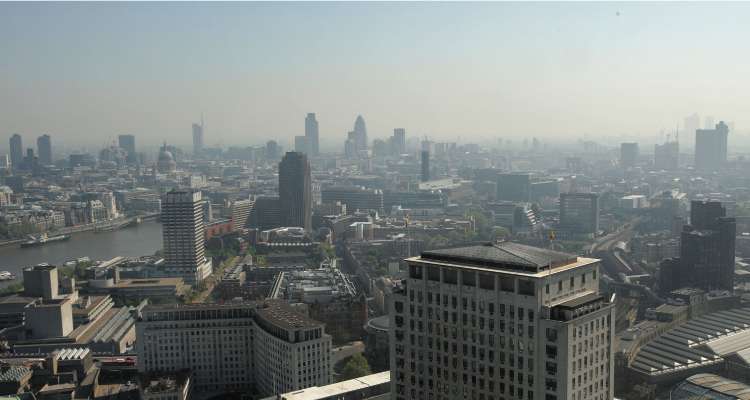After the first sun of the year comes the first smog

Your support helps us to tell the story
From reproductive rights to climate change to Big Tech, The Independent is on the ground when the story is developing. Whether it's investigating the financials of Elon Musk's pro-Trump PAC or producing our latest documentary, 'The A Word', which shines a light on the American women fighting for reproductive rights, we know how important it is to parse out the facts from the messaging.
At such a critical moment in US history, we need reporters on the ground. Your donation allows us to keep sending journalists to speak to both sides of the story.
The Independent is trusted by Americans across the entire political spectrum. And unlike many other quality news outlets, we choose not to lock Americans out of our reporting and analysis with paywalls. We believe quality journalism should be available to everyone, paid for by those who can afford it.
Your support makes all the difference.Just when the country was beginning to enjoy some warm weather, experts warned that the sun has arrived with a sting in its tail – the first smog of summer.
The air pollution is likely to affect England, Scotland and Wales over the weekend, the Department for Environment, Food and Rural Affairs (Defra) warned yesterday. High ozone levels, which occur when sunlight interacts with nitrogen oxides and other pollutants, are set to persist until at least the beginning of next week, when Northern Ireland could also be hit.
Ground-level ozone can affect some people's breathing and Defra experts urged the public to take precautions to reduce exposure, such as avoiding outdoor exercise in the afternoon. They also urged people to avoid making unnecessary car journeys, as the pollutants which cause ground-level ozone come from sources such as petrol.
A Defra spokesman said: "During episodes of air pollution experienced during the summer in the United Kingdom, levels of ozone, nitrogen dioxide and particles may be raised. Most people will experience no ill effects. Those suffering from lung diseases (including asthma) particularly if elderly should be aware that their symptoms might worsen. They may need to consider modifying their treatment as they usually do when symptoms increase, consulting their doctor if this is not effective.
"People who have noticed in the past that their breathing is affected on hot, sunny days should avoid strenuous outdoor activity, particularly in the afternoon.
"Children with asthma should be able to take part in games in the usual way, although they may need to increase their use of reliever medicines before participating."
The spokesman added that anyone suffering from a heart condition who noticed a change in their symptoms should seek medical advice.
Jon Bower, the chief consultant at AEA Environment, said the current weather conditions and predicted hot weekend meant that the UK would not only have to cope with its own ozone but pollution blown over from the Continent. The problem would affect the countryside as well as cities, he explained.
It was impossible to predict whether this would be a particularly bad summer, Mr Bower said, adding: "Last year, we had very few episodes but the long, hot summer of 2003 saw two months of such conditions."
The term smog is attributed to Dr Henry Antoine Des Voeux, who wrote of it in a 1905 Public Health Congress paper explaining that such smoky fog was prevalent in built-up areas. Although modern-day smog is more usually associated with cities such as Los Angeles, London was once famous for its "pea-soupers". The Great Smog of 1952 darkened the capital's streets and killed 4,000 people in just four days. A further 8,000 were said to have died from its effects over the next few months.
Join our commenting forum
Join thought-provoking conversations, follow other Independent readers and see their replies
Comments